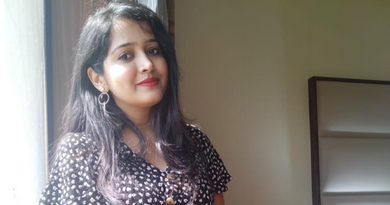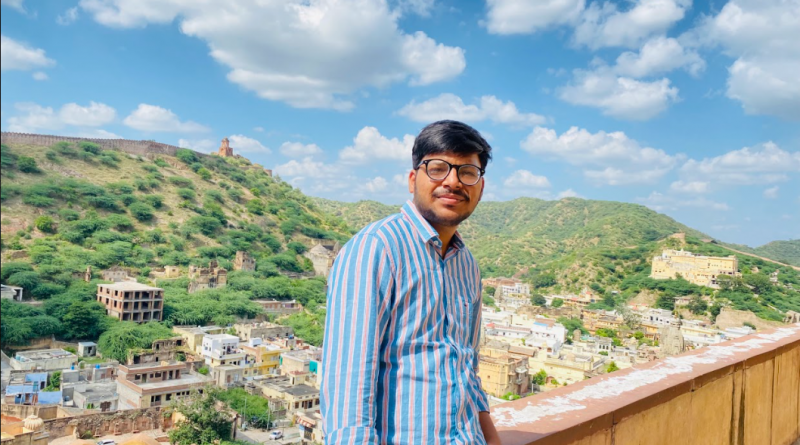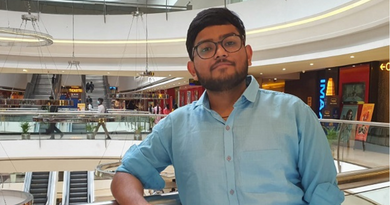Summer Internship with The News Minute – Alankrita Anand from Lady Shri Ram College, University of Delhi
 Alankrita Anand interned with The News Minute and shares how this internship changed her perspective of writing for media. Alankrita is a student of Media and Communication at Lady Shri Ram College, University of Delhi. Read on to explore what she has discovered about media.
Alankrita Anand interned with The News Minute and shares how this internship changed her perspective of writing for media. Alankrita is a student of Media and Communication at Lady Shri Ram College, University of Delhi. Read on to explore what she has discovered about media.
The Perfect News Story
What is the difference between forcible and forceful, what is the difference between a rapist and a rape accused? Do we say that one of the four accused was an MLA’s son? When we say that the perpetrator of a particular crime was from a particular faith, it adds a new dimension to the story. But is it not worth mentioning that the hero of the story was from the same faith if it so happens to be? Or would that shatter the ‘angle’ of the story? – these are some of the many questions that my summer internship taught me to raise.
Earlier in the year, acclaimed journalist Chitra Subramaniam had come to our college- Lady Shri Ram College, and conducted a workshop for the students of the Department of Journalism. She spoke of her new journalistic venture; a news website called The News Minute (TNM hereon), and asked us all to pitch in by writing about stories that mattered to us and to those around us.
And so, I decided to write for TNM. Ms. Subramanium decided to use the article I wrote as part of the workshop as one of the opinion articles for when the site would go live and encouraged me to write more. This was at the time when the Aam Aadmi Party government had fallen and the promise of acche din was on every billboard in the city. Naturally, politics was the flavour of the season and it being the specialization that I wish to take up, I kept writing.
The Delhi University curriculum requires Journalism students to mandatorily complete a 4-6 week long internship in the second year. And while I had interned with two national dailies in the first year and earlier part of the second year, I had not learned as much as I had hoped to. On the contrary, I had even started to lose my faith in the profession when I saw how news was dished out in the big and fancy newsrooms of Delhi. I was left disillusioned when in one of the aforementioned publications, my mentor told me to write something on the December 16 gang rape case when I told him that I wanted to try and write something on the Communal Violence Bill. While I understand that I might have related to the gang rape case better, it was but a practice article and to be told that I should stick to writing on violence against women in a way that dismissed the issue as something trivial enough to not be given the same weight as communal violence, was disappointing.
As a result, I decided to do my summer internship with TNM, I wanted to do stories that mattered, I wanted experienced journalists to actually mentor me and not just treat me as the intern who can file weather reports. TNM, being a small organization, promised me the opportunity to observe and learn in the way I wanted to. So, I flew down to Bangalore where the office is based and found myself in a cosy little corner on a very, very busy street.
The office had a team of four women, the Managing Editor and three reporters. Ms. Subramaniam, the Editor-in-Chief, is based in Geneva, Switzerland. The organization has stringers and guest columnists who fill in from other states and the CEO, who was the Managing Editor’s husband, pitched in with ideas and stories at all times. It amazed me to know that such a small team could dish out so much news one day- news ranging from politics and society to sports and entertainment. Clearly, it was about dedication and talent, combined with that dash of thrill that news-reporting brings.
Over the next four weeks, I learnt how to frame straightforward news reports, I learnt how to write sarcastic commentary articles, I learnt how to speak to sources and interviewees. The crucial importance of deadlines and timeliness was re-engrained in me. The importance of attribution and accuracy was taught to me. Every news value that meant little more than the elements of a 15-mark answer in college was suddenly being put to use in real. I also learnt how to manage the website- how to upload stories, how to market them (use of fancy yet not misleading headlines) and how to see the hits that they were receiving.
The best about being in such a comfortable place where each office-member was so approachable was the fact that my ideas mattered as much as the others’. My stories mattered as much. One day I could be asked to cover a major political event even as a senior could be asked to do an entertainment story if that is how we wanted it to be. The next day, we could switch categories. And no work was considered menial in comparison to another.
I had my share of goof-ups too, from poor proof-reading to misquoted paraphrases and missed deadlines. The worst of these happened on the day the Union Budget was tabled in the Lok Sabha. I was in charge of live tweeting and accidentally, I typed that 50,000 crore had been allocated for a certain project; the real figure was 50 crore and because 50,000 crore sounded so unrealistic, the Twitterati immediately started re-tweeting the tweet and wondered what the goof-up was aloud.
Of course, reporting is not something that you learn in a Journalism course, you don’t even learn it in a month-long process, I think that it requires years of experience and practice. Creative writing is one thing and so, an opinion column comes easily to all of us- it is about how we feel. But reporting isn’t, reporting doesn’t beget our thoughts and feelings.
It is said that most, if not all stories have multiple sides. And it is also said that one must cover all sides. Absolute objectivity is believed to be a core tenet of journalism. So, what is absolute objectivity, or even plain objectivity? The numerical figures of the NCRB data, maybe. But not totally. Because behind these figures are faces, and these faces are human. These faces have stories. What is news then: the stating of the figures or the telling of these stories?
As a race, humans are not objective but as a professional, a journalist strives to be so. In this strife, our human instincts and desires travel with us. In the newsroom, the biggest desire is the lust for speed, ‘breaking’ the biggest stories is what we are all running after. And, why not? You never hear of a plane that didn’t crash, someone once said.
Something’s gotta make news, and something’s gotta make it now.
I once met a journalist who said that covering blasts used to excite her. For some of us, it is the pulse of news that excites, for some, the quantum. But as humans, and as audiences, it is often the drama and the tragedy that strike, and hold.
Where does that leave us then? Do we ‘make’ news or do we ‘present’ news? News, put simply, is a representation of reality. Of course, the kind of representation is always arbitrary. But the first question is, whose reality? And the newsroom answers that question: it could be your editor’s reality, it could be your publisher’s reality, and it could be your advertiser’s reality. Gate-keeping isn’t about what’s newsworthy and what’s not but about what one’s politics is and why. And this is not always wrong.
The public criticizes us ‘media-wale’, us ‘media-wale’ criticize the public (to use a more politically incorrect term- the masses). Yes, the media is often a citadel of elitism. News is (mostly) made in a glass-wall office in central Delhi. News is also made in more democratic spaces, we call them ‘alternative’ media and they’re quite in vogue too. But they remain alternative.
But mainstream or alternative, stories persist. Different angles, different realities; the news remains.
Journalism is a profession but the media is an industry. The media is not charity, it was never meant to be. The fourth estate is an institution; nobody said it was a not-for-profit one. It is within this framework that we work- objective journalists and subjective humans.
As a journalist, I am not even a certified one yet. As a student of journalism, I feel that I more than belong. As an intern, I have had an ever-rising learning curve. And as a human being, this is an opinion piece.
If Alankrita‘s internship experience motivates you, you can view the latest internship in Delhi.
Editor’s note- Have you got an internship story to share? A chance to win cool Internshala T and other cash prizes by sharing your internship story here.



